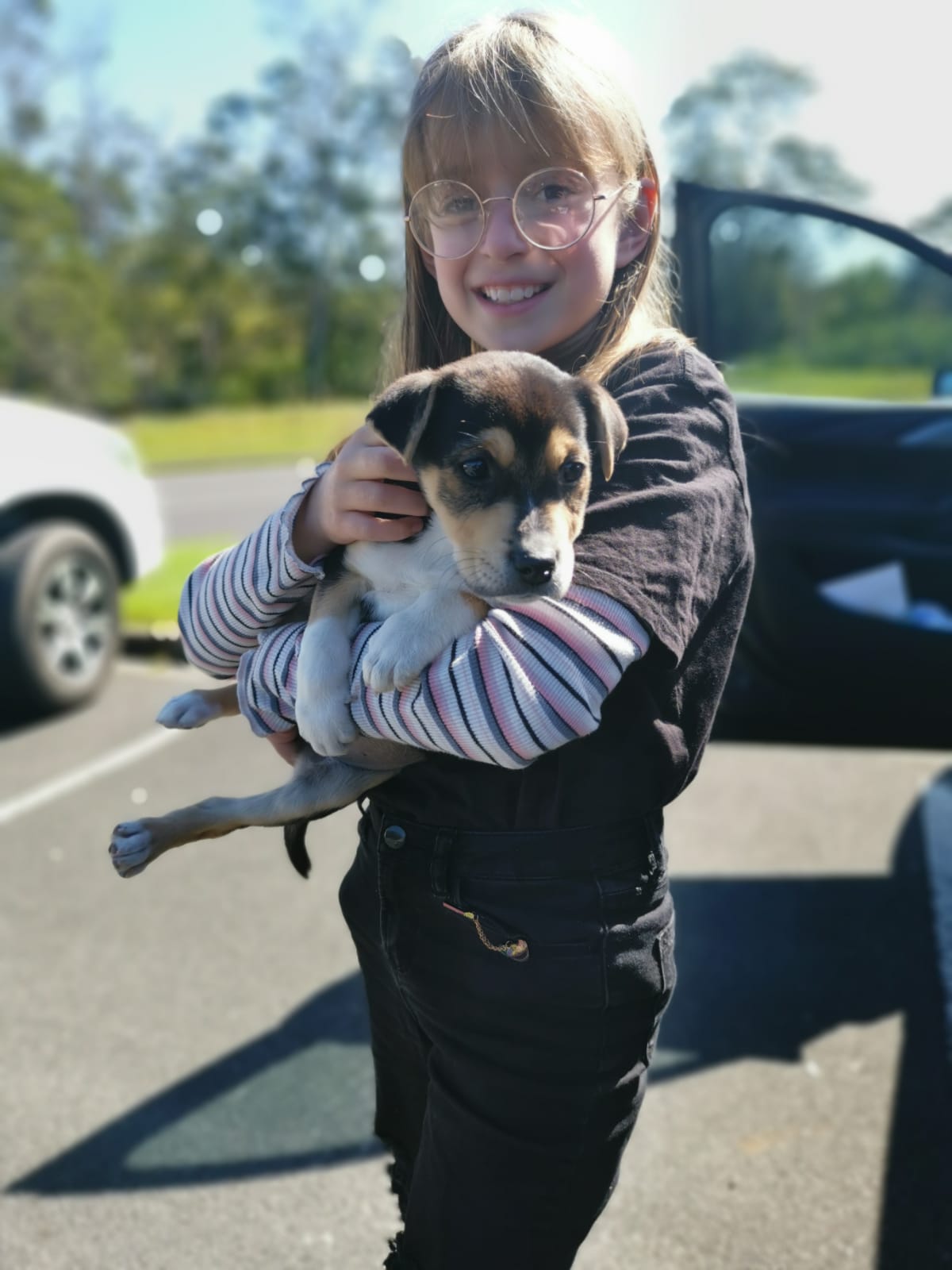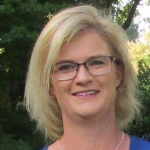 |
Becky Rose
Written by parents Tali and Ben Rose
Auckland
|
|
In August 2019, Becky was diagnosed with Crohn's disease. While it doesn’t define her, it
causes her significant pain and she has had many, many hospitalisations and surgery because of
it. When the clock ticked over to her 10th birthday, she was in the Starship emergency
department, crying in pain. While the disease is now largely under control, Becky is left
without a large part of her small intestine, and in fear of a recurrence.
Becky has endured many, many different courses of treatment for her Crohn’s - from complete
food replacement for over 2 months, to ongoing tablets, injections and infusions of multiple
drugs including Adalimumab and Infliximab. Unfortunately, like many other patients, Becky has
developed antibodies to both Infliximab and Adalimumab, rendering them useless in her fight
against Crohn’s.
There are drugs, including Ustekinumab and Vedolizumab, that could help Becky to alleviate her
pain, decrease the risks of requiring further surgery to remove affected bowel (with the
ultimate risk of having insufficient intestine to maintain her health), and provide a chance to
live a normal life. However, in New Zealand these drugs are completely unfunded.
If we lived in Australia, the US or the UK, this would not be the case and Becky could start
treatment immediately. However, as we live in New Zealand, we are faced with an impossible
choice: pay $6,000 every 8 weeks for the rest of Becky’s life, or condemn her to a future of
pain and suffering. We are truly heartbroken by this as would be any parent.
We call on Pharmac to include these drugs in the list of funded medicines, and with urgency.
This isn’t an abstract business case discussion. It’s about stopping our kid from crying in
pain or losing her intestine.
#wecantwait
|
 |
Danielle Barber
Christchurch
|
|
I was diagnosed with Crohn’s disease in December 2016 after two months of symptoms. I was
hospitalised many times as my condition worsened and required a subtotal colectomy in August
2017, resulting in a colostomy. The disease was again unable to be managed with medication
following this and I had a total colectomy on Christmas day 2017, resulting in a
permanent ileostomy. During this time I was being fed through either a nasogastric tube or a
PICC line, in constant pain, unable to move without vomiting, developed large ulcers in my mouth
and oesophagus and countless other symptoms. The ileostomy developed a significant prolapse and
this was surgically repaired March 2019. Since then, Crohn’s has manifested outside of the
digestive tract in pyoderma gangrenosum, erythema nodosom and abscesses that have required minor
surgery to drain. Even with surgical intervention, the current medications have not been able to
fully control the symptoms of this disease. I worry that my future includes a very poor quality
of life if these medications continue to remain unavailable in New Zealand. I would like to live
without the burden of this disease, but I don't believe that is possible while relying on the
current medications.
|
 |
Nic Burkin
Hastings
|
|
I was diagnosed with Crohn’s disease in 1997 when I was just 12 years old. I woke up to the
Paediatrician waiting for me and he apologised as he had gotten it so wrong and that in fact, I
was a very sick girl. I have had countless stays in hospital from my teenage years onwards.
Some were only a few days, other were weeks and at one point it was two months at a time. I
have had all the procedures you can think of repeated over and over, ultrasound, CT, small bowel
barium x-rays, pill cameras, gastroscopies, colonoscopies and at times blood tests done weekly.
I was in day surgery so often that I knew all the nurses and anaesthetists by name and they knew
me. I had never been over 50kgs until I was 21 years old. Constant diarrhoea, bleeding, stomach
pain, absolutely no energy, I was exhausted for a good 9 years of my life. I have had a bowel
resection and have ended up with a “temporary” ileostomy when I was 21 (14 years ago) and still
have it now. I have rheumatoid and Crohn’s related arthritis. Daily pain in my back, neck,
fingers, ankles, knees, wrists and hips. My life is what happens when you don’t have the right
medication!
If we had access to decent medication, I may not have had to have my ileostomy. I still live
with fatigue every day. Trying to function “normally”, looking after my family, working,
coaching sports teams, all whilst having “nothing in the tank” from breakfast time.
|
 |
Jessica Port
Wellington
|
|
I am 34 years old and have been living with severe Crohn's disease since (and before) my
diagnosis in 2007 at age 21. A month after my diagnosis I underwent a bowel resection. Since
then I have had surgeries involving two temporary ileostomies fitted. To be honest I have lost
count of the amount of surgeries I have had, but I know it is more than thirty. I now have an
ileostomy and am facing the prospect of losing my large bowel if further drug treatment does not
work.
I was studying web development when I was diagnosed but the disease interrupted that career and
full-time work has eluded me as the Crohn's has progressed. I have a lot of issues with my
ileostomy and my skin which is why I do not want it forever if there is another option.
|
 |
Belinda Brown
Auckland
Operations Manager, Crohn’s & Colitis New Zealand Charitable
Trust
|
|
I was diagnosed with Crohn’s disease in 2002 at the age of 26. After six years of enduring
symptoms and many hospital visits, I was told my only option was to have a bowel resection
because my disease was so severe. Eight years later, after a pregnancy and two miscarriages, I
underwent another bowel resection to remove more of my diseased bowel and adhesions from my
first surgery.
As a result I can no longer conceive naturally and had to accept that I was never going to have
the siblings, that I had dreamed of, for my daughter. I have suffered bouts of depression and
endured many humiliating and degrading side effects of Crohn’s disease. It is a real struggle
to get myself out of bed some mornings.
To date I have had sixty centimetres of my small bowel removed and I am desperately trying to
prevent further surgeries through medications. I have failed several medications already and am
currently experiencing symptoms again. I have one other medication I can try before surgery is
once again my only option. I am hopeful more options will be available for people like myself.
|

|
Emma Taylor
Wellington
|
|
I am from Wellington and was diagnosed in 2015 with Ulcerative Colitis. Doctor’s tried
numerous medications and procedures, however after a year they soon decided surgery was the only
option to relieve my IBD.
I have had three major surgeries. The first surgery was to remove my large bowel and give me a
temporary loop ileostomy and a mucous fistula. The second surgery was to create the j-pouch and
move the fistula to where the ileostomy was located. My third surgery was to join my loop
ileostomy and mucous fistula back up and allow my j-pouch to function. I now live with a
j-pouch but still suffer some mild symptoms of IBD.
A future without medication choices would be awful. Even though I have had surgery, I still go
to the bathroom at least three times a day, however without medication I can often go at least
six times a day. If I am having a flare it can be anywhere up to ten times a day. Medication
certainly helps this, so I would suffer without it. I would be a lot more confident going out
in public knowing I do not have to look for every single toilet for that 'just in-case moment'.
|
 |
Henry Whitaker
Waikato
|
|
In August 2019 I was diagnosed with ulcerative colitis. I was admitted into hospital in late
October 2019 and spent nine days there with a flare. My flare has been ongoing since then. I
have been put on medication but have seen no real improvement. Because I have not responded to
the medication, I only see one place I am heading to and that is surgery. Thankfully, I have
not had to head down this path yet.
I am back at work but would love to get back to my happy, healthy self. I have had to limit my
physical exercise which, as a firefighter has meant I can no longer compete in combat challenges
or any other fire service related experiences. I would really hope that more medications were
funded within New Zealand for IBD patients like myself, who have had no luck receiving the right
medication to help manage their health issues.
|
 |
Kate Montgomery
Auckland
|
|
I was diagnosed with Crohn’s disease in 2005. I underwent four bowel surgeries due to my
Crohn’s disease, including a partial, then full colectomy. I had a temporary ileostomy for 9
months in 2010 and a permanent one since 2015. Between 2011 and 2015 my Crohn’s disease was so
severe, I was bedridden, and spent an average of 3 months in hospital each year. While I’ve
already had my surgery to have an ileostomy, I still have a lot of other symptoms that effect my
quality of life, these symptoms have not been helped by the medications currently available, and
could be helped by medications that aren’t currently available in New Zealand.
|

|
Hollie Asprey
Wellington
|
|
In 2019 I was diagnosed with Ulcerative Colitis through colonoscopy. Five days after my
diagnosis, my symptoms became so severe that I was admitted to hospital. Whilst in hospital I
received a range of treatments to try and stabilise my condition. Following discharge from
hospital, I continued to experience difficulties and was readmitted for a further period of
time, with additional treatments trialled. My condition is currently stable with careful
management using a combination of daily medications and eight weekly intravenous infusions.
Whilst these medications are currently offering some relief from severe symptoms, I am aware
that, over time, these medications may fail. Unless other medications become funded in New
Zealand, my only other treatment option may be surgery.
|
 |
Tamsyn Cornwall
Auckland
|
|
I was diagnosed with Crohn's disease in 1998 when I was only eight years old. I have had many
hospitalisations over the years from my symptoms, too many to count. I haven’t had any
surgeries yet, but this could be a very real option in my future. I am currently on medication
that is not working any more and my body has created antibodies to that medication. I am
incredibly anxious about what this means for my future options in life.
I definitely consider myself an IBD warrior, with a sunshine state of mind, however to say I
haven't struggled would be a lie. Crohn's Disease has impacted my life in a huge way: some days
I can't even get out of bed and simple tasks like having a shower or making myself food are
physically exhausting. I am extremely hopeful that more medication options will be made
available soon.
|
|
Jennifer Gay
Kaitaia
|
|
I was diagnosed with ulcerative colitis in 2010. My symptoms began with me passing a little
blood every time I went to the toilet. I have tried all sorts of things to manage my disease
including almost every diet you have ever read about. I gagged on medications and even went
into anaphylaxis shock after taking one medication. I would get sick, manage my symptoms by
taking steroids, get well again and then the next month the cycle would begin all over again. I
lived in the toilet and struggled to get out of bed. Earlier in 2020, I got sick and this time
I did not get better. My Doctor went to perform a colonoscopy, my disease was so severe that
they could not even insert the scope. By this stage I was suffering from a loss of appetite and
had lost fourteen kilograms in weight. I have tried lots of different medications and
experienced side effects from almost all of them. I am currently having infusions and they are
working, for the time being. However I am nervous about what my future holds. If for some
reason my current medication stops being effective, I am almost certain I will face surgery for
the removal of my bowel. This will not stop the symptoms of ulcerative colitis. I really don’t
want to go back to living within my four walls between my bed and toilet, with the fear of
leaving my house in case I have an accident in public.
|